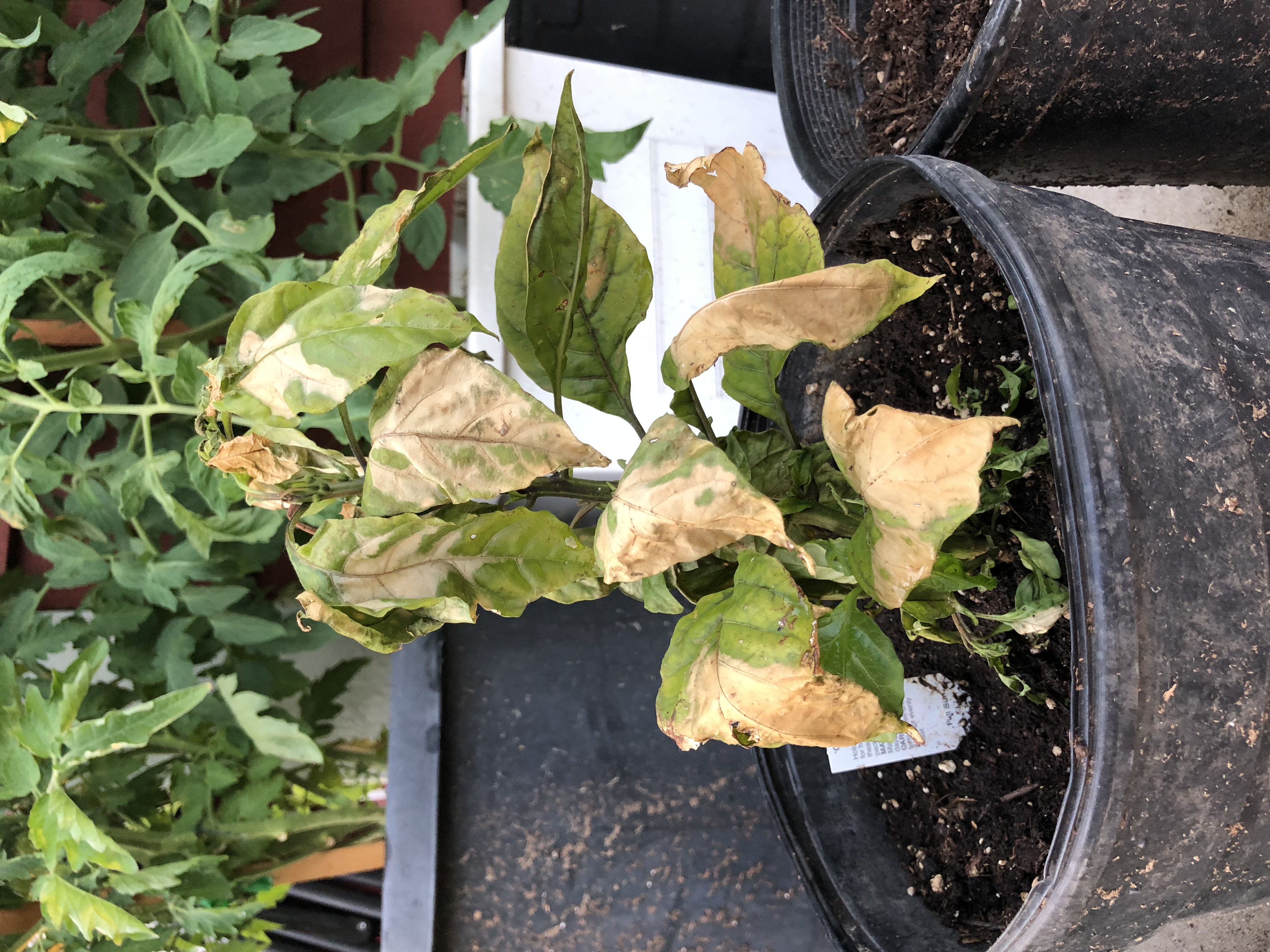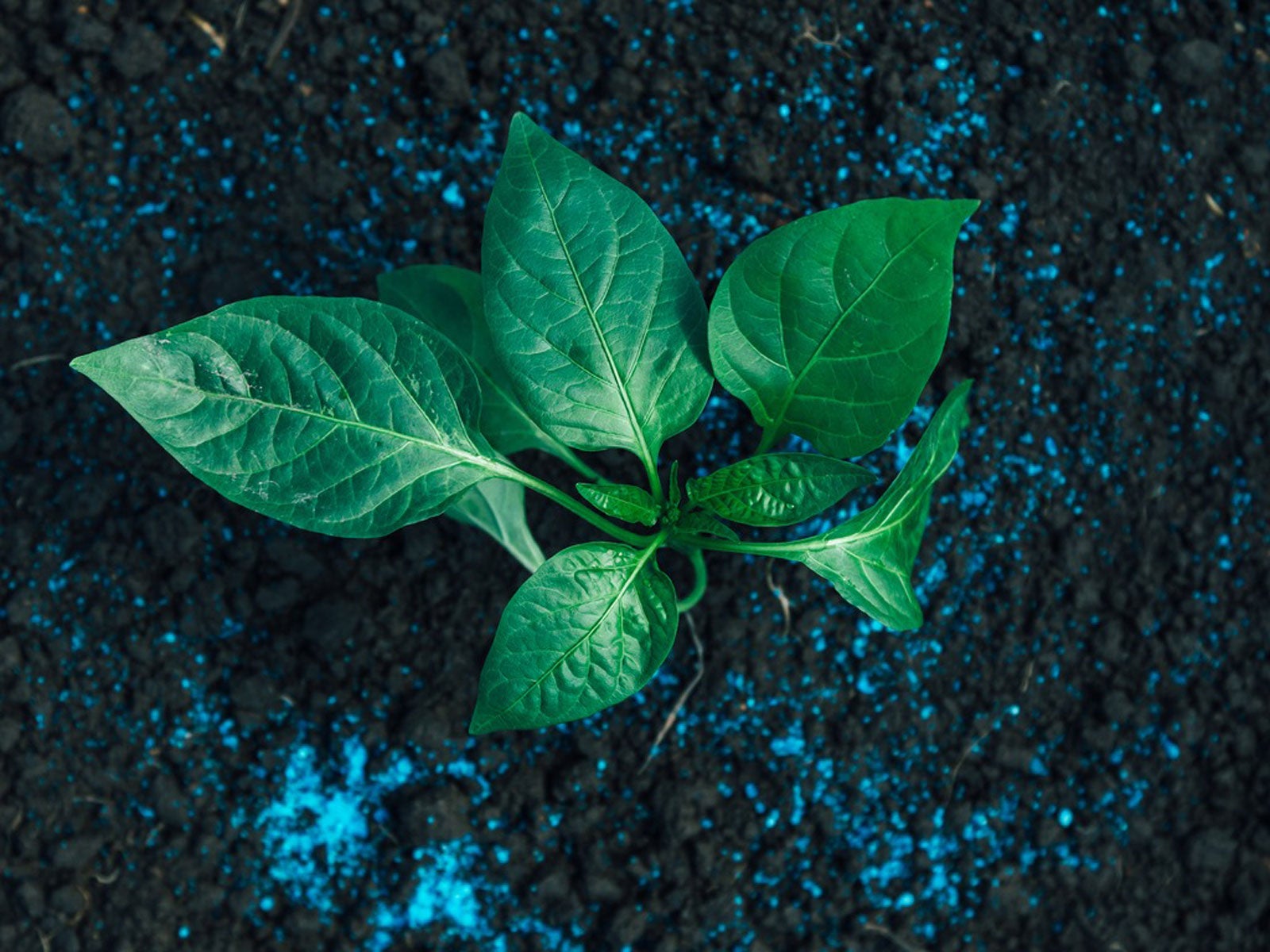Organic Vs. Synthetic Fertilizers: Which Is Best for Supporting Healthy Pepper Plants?
In the realm of nurturing healthy pepper plants, the selection in between natural and artificial fertilizers stands as a pivotal decision with significant ramifications. While both choices aim to give necessary nutrients to sustain plant development, the nuances of their effect on the soil, plant health and wellness, and the setting trigger a debate that mirrors throughout the gardening community. Comprehending the distinctive benefits and potential pitfalls of each fertilizer type is crucial for pepper growers looking for to optimize their yields while maintaining an eco-conscious and lasting strategy.
Advantages of Organic Plant Foods
Organic plant foods offer a sustainable and environmentally-friendly method to nourishing pepper plants, providing vital nutrients without the usage of artificial chemicals. These natural plant foods are stemmed from natural resources such as compost, manure, bone dish, and algae, promoting dirt health and biodiversity. Unlike synthetic fertilizers, organic options release nutrients slowly, making sure a well balanced and stable supply for pepper plants to grow.
One considerable benefit of organic plant foods is their capability to enhance soil structure and water retention. By boosting soil health and wellness, natural fertilizers advertise useful microbial task, which assists in nutrient uptake by pepper plants. Additionally, organic plant foods lower the threat of chemical run-off, protecting water resources from pollution and securing the environment.
In addition, natural plant foods add to lasting soil fertility by advertising the development of useful dirt microorganisms. These microorganisms aid break down raw material, releasing nutrients in a kind that is quickly available to pepper plants. best fertilizers for peppers. By promoting a healthy and balanced dirt ecosystem, natural plant foods support sustainable pepper farming methods that profit both plants and the setting
Disadvantages of Artificial Plant Foods
Artificial plant foods, as opposed to their organic equivalents, present various downsides when used to nourish pepper plants, influencing both plant wellness and ecological sustainability. One significant disadvantage of synthetic plant foods is their tendency to leach nutrients from the soil swiftly. This rapid leaching can bring about vitamins and mineral discrepancies in the dirt, triggering plants to endure from toxicities or deficiencies. Additionally, artificial plant foods can hurt advantageous dirt organisms, such as earthworms and useful germs, disrupting the soil community's equilibrium.
Furthermore, the overuse of synthetic fertilizers can add to water contamination. Excess fertilizers not soaked up by plants can get rid of into water bodies, leading to eutrophication, where algae blossoms deplete oxygen degrees in the water, harming marine life. In addition, synthetic plant foods are usually derived from non-renewable sources, such as nonrenewable fuel sources, adding to carbon emissions and environmental degradation during their manufacturing.
Nutrient Absorption Contrast
When contrasting natural and synthetic plant foods in terms of nutrient absorption, natural fertilizers have the benefit of giving a much more balanced and slow-release source of nutrients. Organic plant foods have a variety of macro and trace elements that are not just valuable for the plants but additionally advertise healthy and balanced dirt microbial activity, which assists in nutrient uptake.
Furthermore, natural plant foods enhance soil structure and water retention ability, allowing pepper plants to gain access to nutrients more successfully. This better soil quality facilitates origin advancement, making it possible for you can check here far better nutrient absorption. Artificial plant foods, although originally boosting plant growth because of their high nutrient concentrations, may prevent lasting nutrient absorption by degrading dirt health over time.
Environmental Effect Considerations

On the other hand, synthetic fertilizers, although often even more right away offered and focused to plants, can have harmful impacts on the environment if not applied properly (best fertilizers for peppers). Their manufacturing requires high energy inputs, resulting in greenhouse gas emissions and adding to environment change. The overflow of excess artificial fertilizers can pollute water sources, leading to eutrophication and hurting aquatic ecosystems.
Best Fertilizer Practices for Peppers
To achieve this, it is vital to comply with finest plant food practices customized to the particular requirements of pepper plants. One vital method is to do a soil examination before using any fertilizers.
An additional crucial practice is to fertilize pepper plants at the correct time. Normally, peppers take advantage of obtaining fertilizer at planting and afterwards again when they start to flower. Over-fertilizing can bring about vitamins and mineral inequalities and damage the plants, so it is essential to follow suggested application prices.
Additionally, selecting a well balanced plant food with an NPK ratio that suits Full Article pepper plants' requirements is fundamental. Organic fertilizers, such as garden compost or manure, can be outstanding choices as they release nutrients slowly and improve dirt framework with time. Synthetic fertilizers can provide a fast nutrient increase when required. Ultimately, integrating organic and artificial fertilizers carefully can assist support healthy and balanced pepper plants while lessening ecological influence.
Final Thought

Organic fertilizers use a lasting and environmentally-friendly strategy to nourishing pepper plants, supplying important nutrients without the use of synthetic chemicals. Unlike synthetic fertilizers, organic options release nutrients slowly, making certain a well balanced and steady supply for pepper plants right here to grow.
Synthetic plant foods, in contrast to their natural equivalents, present numerous drawbacks when utilized to nourish pepper plants, affecting both plant wellness and ecological sustainability. When comparing organic and artificial plant foods in terms of nutrient absorption, natural plant foods have the advantage of providing a more well balanced and slow-release source of nutrients.Moreover, organic fertilizers enhance dirt framework and water retention capacity, allowing pepper plants to accessibility nutrients more successfully.
Comments on “Best Fertilizers for Peppers: Boost Development and Taste Naturally”